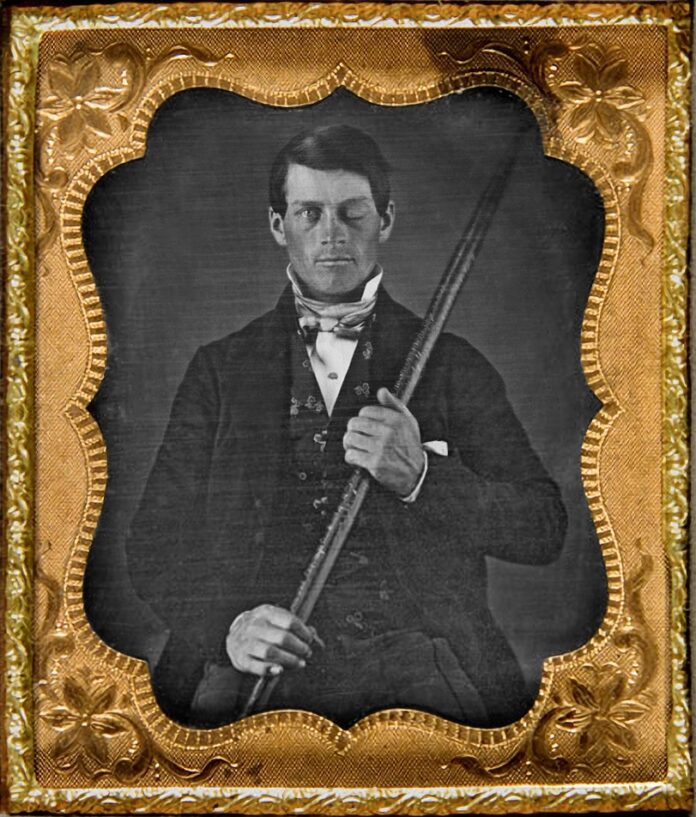Why is Michael Faraday important?
English physicist and chemist Michael Faraday was one of the greatest scientists of the 19th century. His many experiments contributed greatly to the understanding of electromagnetism.
What was Michael Faraday’s childhood like?
Michael Faraday’s father was a blacksmith. His mother was a country woman of great calm and wisdom. Faraday was one of four children who were often hungry, since their father was often ill and couldn’t work steadily. At an early age, Faraday began to earn money by delivering newspapers for a book dealer and bookbinder.
Where did Michael Faraday study?
Michael Faraday received a basic education at Sunday school. When he was an apprentice bookbinder, he was offered a ticket to attend chemical lectures by Humphry Davy. The lectures inspired Faraday to become a scientist. He eventually became Davy’s laboratory assistant, enabling him to learn chemistry from one of the greatest practitioners of the day.
When Faraday was 20, he was given tickets to attend the lectures of famed British chemist Sir Humphry Davy at the Royal Institution of Great Britain. Faraday wrote a 300-page book based on notes he’d taken during these lectures and sent it to Davy. The following year, Davy damaged his eyesight during an experiment and hired Faraday as his temporary assistant. A short time later, an assistant was fired for brawling and Davy offered Faraday a permanent job, which he accepted.
What did Michael Faraday discover?
In 1820 Michael Faraday produced the first known compounds of carbon and chlorine. In 1825 he isolated and described benzene. What’s more, in 1821 he invented the first electric motor, and in the early 1830s he discovered a way to convert mechanical energy into electricity on a large scale, creating the first electric generator.
What is a cool kid fact about Michael Faraday?
His most important work was his invention of the electric motor in 1821. He also worked on magnetism, and later discovered how to make electromagnets, which are used in electric generators. Apart from his work in physics, Faraday also made important discoveries in chemistry, such as how to make stronger steel.
Known as the “father of electrical engineering,” you probably know Michael Faraday is most famous for his contribution to the field of electromagnetism. His inventions include the first electric motor and the first electromagnetic generator. He also discovered the principles underlying electromagnetic induction and diamagnetism. You also probably know the unit of electrical capacitance is named the farad (symbol F) in his honor. But you may not know everything about Michael Faraday.
What were Michael Faraday's hobbies?
Faraday's interests were various: he studied the condensation of gases, metallurgy, optical illusions (including diamagnetism), acoustics, and the conservation of energy.
Read on for more Faraday facts.
Michael Faraday was born in England on the 22nd of September, 1791 and died on the 25th of August, 1867.
His work on electrochemistry and electromagnetism laid the foundation for many areas of science. He formed the basis of the electromagnetic field concept in physics, discovered the laws of electrolysis, invented electromagnetic rotary devices that were vital in the creation of electric motors and played a key role in the development of electricity for use in technology.
Not limited to physics and electromagnetism, Faraday also invented a simple Bunsen burner, coined terms such as electrode, cathode, anode, and ion, discovered benzene, and investigated the nature of chlorine.
Faraday had only a basic education in a family that was not well off. He had only a minimal understanding of technical mathematical concepts but was still able to produce some of the most important scientific concepts in history and did so in a language that was clear and easily understood.
Faraday was a man of honor who was strong in his convictions. He rejected both a knighthood and an offer to become President of the Royal Society as well as turned down a burial in Westminster Abbey. He also refused to assist the British government in the production of chemical weapons for use in war.
Albert Einstein admired Faraday's work and kept a picture of him on his study wall.
Famous Michael Faraday quotes include: “But still try, for who knows what is possible”
“Nothing is too wonderful to be true if it is consistent with the laws of nature”
“There is no more open door by which you can enter into the study of natural philosophy than by considering the physical phenomena of a candle”
“I was at first almost frightened when I saw such mathematical force made to bear upon the subject, and then wondered to see that the subject stood it so well.”
HE NEVER HAD A FORMAL SCIENTIFIC EDUCATION. ...
HE WAS A SELF-STARTER. ...
HE INVENTED A MOTOR WITH MAGNETS AND MERCURY. ...
HE ALSO CREATED THE FIRST ELECTRIC GENERATOR. ...
HE SHOWED THE PULL OF MAGNETIC FORCE. ...
YOU CAN VISIT HIS MAGNETIC LABORATORY IN LONDON. ...
HE POPULARIZED NEW SCIENTIFIC TERMINOLOGY.
Faraday invented the toy balloon.
Birthday parties and other celebrations just wouldn’t be the same without balloons, and we have Faraday to thank them. He used small rubber balloons in experiments with hydrogen at the Royal Institution in London. Faraday also discovered benzene (one of the most important substances in chemistry) and provided proof that all gases could be liquefied by the use of low temperatures and/or high pressures, which ultimately led to the invention of the refrigerator.


